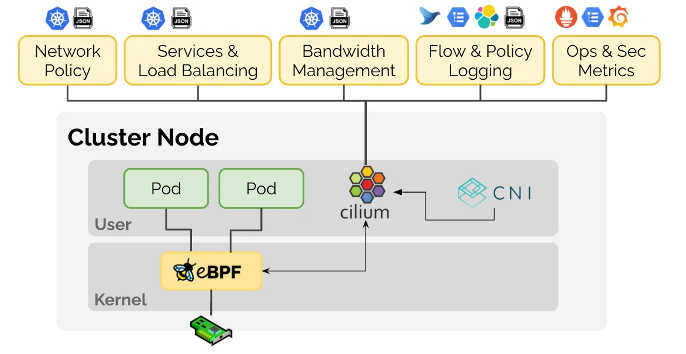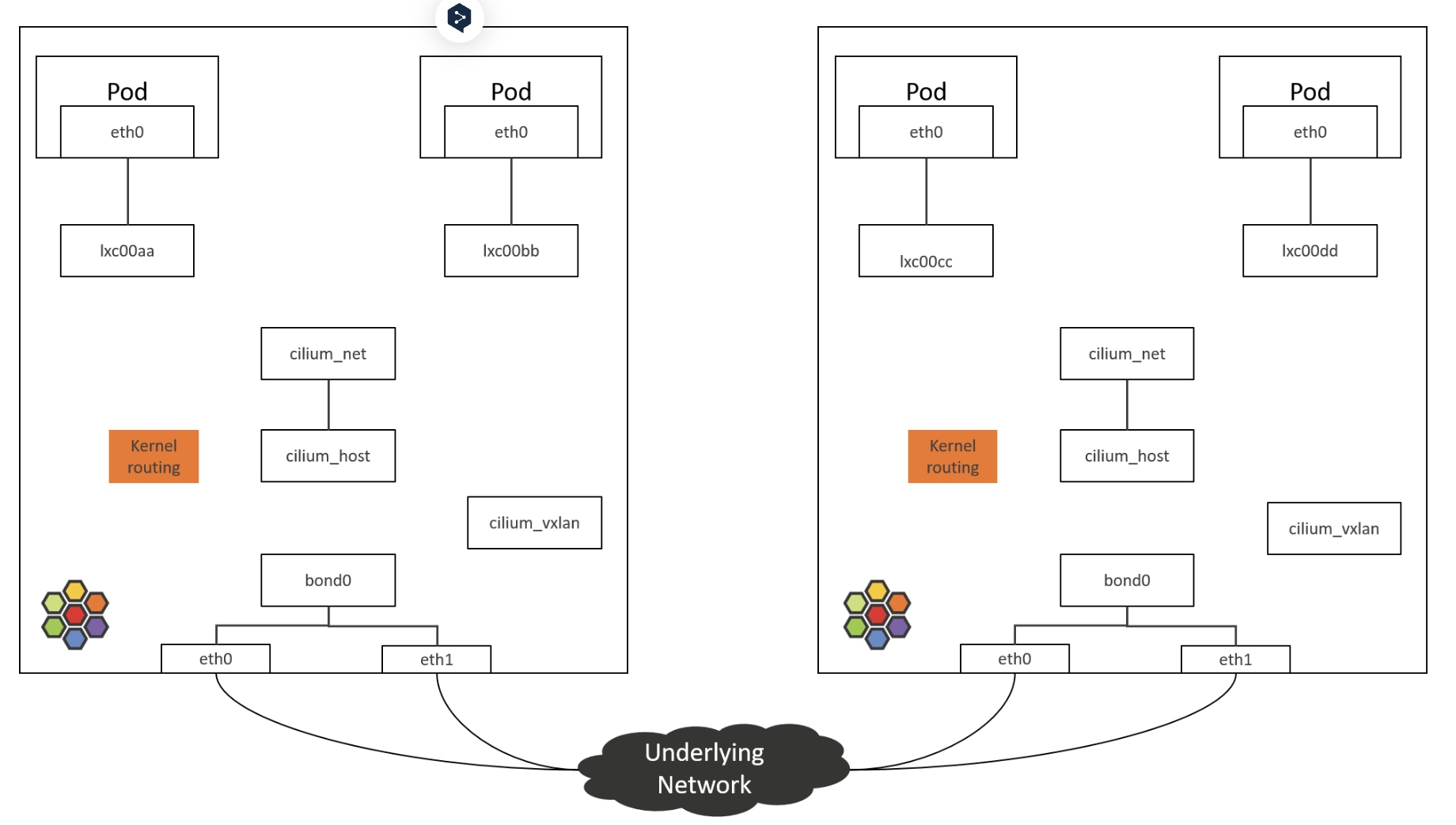Cilium CNI for high-performance network connectivity for VNF/CNF¶
Introducing Cilium CNI for high-performance network connectivity for VNF/CNF.
https://blueprints.launchpad.net/tacker/+spec/intro-cilium
Problem description¶
One of the pain point of tacker is that it hasn’t been implemented any network optimization mechanism by default while we’ve targeted vRAN usecases in which high performance network connectivity is required. It’s available for VMs or containers to attach any dedicated hardware acceleration device such as virtio or SR-IOV via neutron or OVN.
However, such a network acceleration technology is not so suitable for a case in which so many entities are run on distributed nodes for covering wide area of data plane. Especially for container usecase, it’s more difficult because implementation of virtual device is not so mature or routing is not designed well as known as a complexity in service mesh.
Cilium is for providing, securing, and observing network connectivity between workloads, fueled by the revolutionary Kernel technology eBPF [1]. Although the performance of network throughput is less than other technologies, it’s still not so bad comparing with.

Use Cases¶
Cilium supports several kind of usecases of networking including high-performance CNI, L4 load-balancer or BGP based on eBPF technology. One of the effective usage is to avoid a complexity of traditional service mesh as described in the previous section.
Cilium Service Mesh is for replacing traditional service mesh frameworks by the mesh layer directly into the kernel using eBPF without sidecar proxies. It manages connectivity at both the networking and application protocol layers, handling protocols like IP, TCP, UDP, HTTP, Kafka, gRPC, and DNS with greater efficiency.
With Cilium’s Cluster Mesh for multi-cluster networking, you can connect the networks of multiple clusters in such as way that pods in each cluster can discover and access services in all other clusters of the mesh, provided all the clusters run Cilium as their CNI [2]. This allows effectively joining multiple clusters into a large unified network, regardless of the Kubernetes distribution or location each of them is running.

Although there are a lot of useful example usecases for Tacker’s service scope, we focus on the most basic usecases to be implemented as samples in this spec. In the all usecases, Tacker is able to deploy VNFs/CNFs on nodes in which Cilium CNI is activated.
Single Kubernetes node on All-in-one devstack environment¶
The first usecase is to deploy a single Kubernetes node on all-in-one devstack environment. It’s one of the simplest usecase and supposed to mainly be used for development for test Cilium networking.
Multi-nodes Kubernetes cluster on multi-node OpenStack¶
The second usecase is to deploy a multi-node Kubernetes node on multiple OpenStack nodes for running some more complex or realistic scenarios of Cilium networking.
In this usecase, Kubernetes master node is separated from OpenStack controller node because of duplicated default port of cilium and an OpenStack service.
Multi-nodes Kubernetes nodes from a VNF package¶
The final usecase in this spec is to deploy a multi-node Kubernetes node deployed with Tacker’s VNF package for auto-healing or auto-scaling OpenStack nodes for running some more complex or realistic scenarios of Cilium networking. All Kubernetes services are on the OpenStack worker node.
Proposed change¶
The purpose of this spec is to introduce simple usecases using Cilium networking with eBPF or XDP. We need to update devstack scripts for installing Cilium not only in Tacker’s repo but also devstack-plugin-container’s repo [3].
In this updated devstack script, CONTAINER_ENGINE should be set to
CRI-O because Docker is not supported as the default runtime in Kubelet
anymore and causes a trouble sometimes.
Alternatives¶
None
Data model impact¶
None
REST API impact¶
None
Security impact¶
None
Notifications impact¶
None
Other end user impact¶
None
Performance Impact¶
None
Other deployer impact¶
None
Developer impact¶
None
Upgrade impact¶
None
Implementation¶
Assignee(s)¶
Primary assignee:
Yasufumi Ogawa <yasufum.o@gmail.com> <yasufumi.ogawa@ntt.com>
Work Items¶
Replace container runtime from docker to CRI-O.
Support devstack script for installing cilium CNI instead of flannel.
Fix compatible combination of versions of Kubernetes, container runtime and golang.
Disable kuryr-kubernetes.
Dependencies¶
None
Testing¶
None
Documentation Impact¶
Update a devstack setup guides for setting up cilium.
Add an overview of usecases as an introduction.
Add each instruction of deployment for the usecases as a detailed instruction.
Add a cilium usage guides for operators considering cases such as trouble shooting of cilium or using eBPF functionalities directly.
